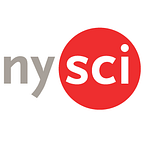STEM Profiles: Tanja Smith’s Frontier Life
Tanja Smith is the Associate Director of the Production Lab at the New York Genome Center (NYGC), a not-for-profit organization working at the forefront of biomedical research to save lives. She is the subject of our newest STEM Profile. (Other profiles are here and here.)
Tanja works with renowned medical, academic and industry leaders from around the world, using genomic research to fight serious diseases. Doctors hope that by sequencing, or reading, the genetic material in people’s bodies, they will be able to find treatments precisely targeted to help them.
We asked Tanja to talk about how she got into genomic research and how her job will affect millions of people in the years to come.
Tell us what you do.
My department’s mission is to provide access for researchers to cutting-edge, next-generation DNA sequencing technology to allow them to investigate human diseases and treatment options. The NYGC is looking to translate genomics to actionable results that doctors can use to provide better care to their patients.
I run the production laboratory and oversee everything that deals with the physical processing of genetic samples. The production lab is a high-throughput next-generation sequencing facility, and we sequenced around 30,000 samples for over 1,000 different projects last year. We work with collaborators around the world, and it is my responsibility to ensure that the sequencing happens in a timely manner and that we send high-quality sequencing data back to the investigators. It is a very process-oriented role, and a lot of my time is spent looking at existing processes, making improvements, and building up capacity to meet the increasing demand for sequencing, while making sure the lab staff has all necessary resources to do their work.
Give us the big picture — what is this all about?
We are hoping to advance personalized medicine. Right now, doctors may have three or four different types of treatment options for a particular disease, and they use their judgement and experience to decide what treatment is right for their patient. One day our work will make that decision simpler for them. That’s important. For a lot of diseases, such as cancer, it is vital that the patient receives the correct treatment as soon as possible. Genetic sequencing would not only be able to determine exactly what type of illness one has, but also predict what type of medicine and treatment would work the best with the least side effects for an individual.
What got you into this field?
Growing up, I had the idea of being a veterinarian or teacher, but it wasn’t until I started learning about genetics that I really knew I wanted to pursue the work I am in today. I had an amazing biology teacher in high school when I was first learning about genetics, and I fell in love with the problem solving and analytical component of it. He posed challenging questions but also had a great sense of humor and made the classes fun. You could tell how much he loved the material he was teaching, and how important it was to him that we all learned and cared about biology.
What kinds of things did your parents say to you about your career?
They were always very supportive. They said it is important that you study and work in an industry that you’re passionate about. If you are passionate about something, it won’t feel like hard work and you will get through it. I grew up in Germany and did a year as an au pair in the U.S. as an in-between, but I ended up liking it so much that I decided to stay in Maryland and attend community college to get an associate’s degree, then I moved over to Bowie State University to get my bachelor’s degree. My parents struggled with my decision to study and work in the States, but they were proud of the fact that I received a college education, since neither of them had that opportunity.
What would you say to students today who may be interested in going into a scientific field but are not sure?
I would encourage them to pursue a career in the sciences, which will continue to be in demand and will only continue to grow in relevance and ways that we can use to make peoples’ lives better. There are lots of available jobs and many different opportunities in the various fields. In my experience, the field of genomics constantly evolves and changes and there are always new challenges to tackle and new things to learn, which keeps things interesting. Go find an internship in an area that interests you; it is a great way to find out more and get exposure.
Check out other STEM Profiles in our series:
· Anzar Abbas, a neuroscience student examining the resting brain.
· Mike Nguyen, a mathematician and former football star.
